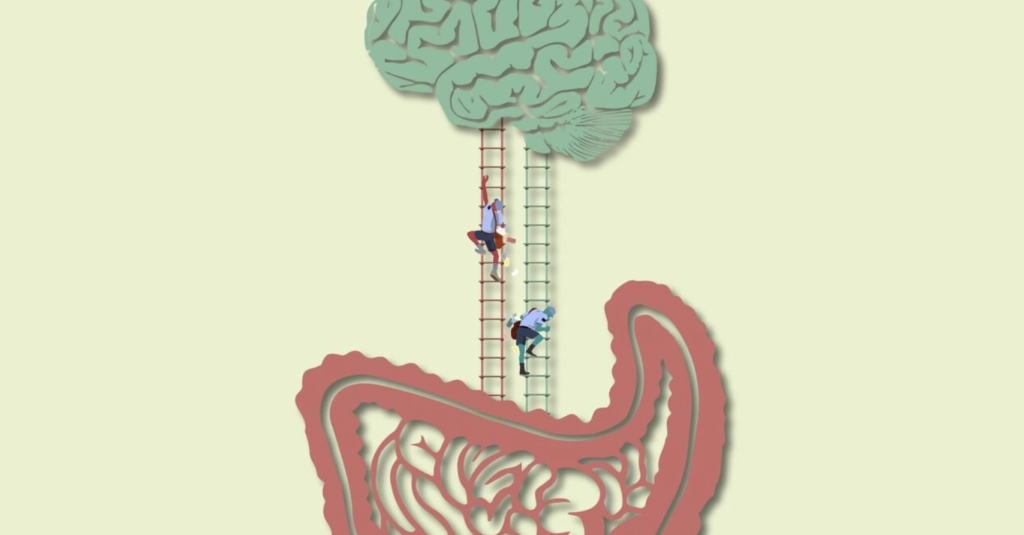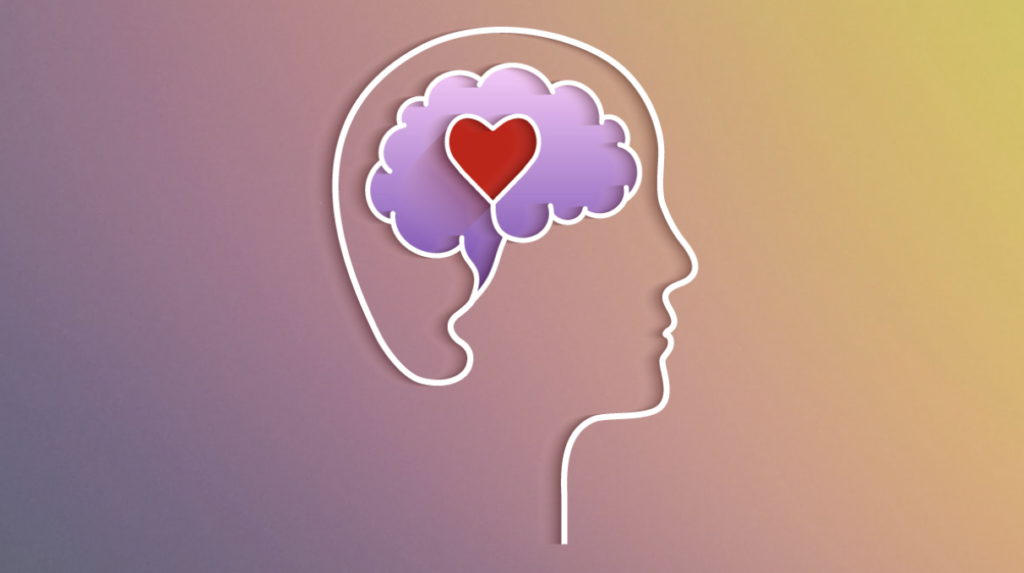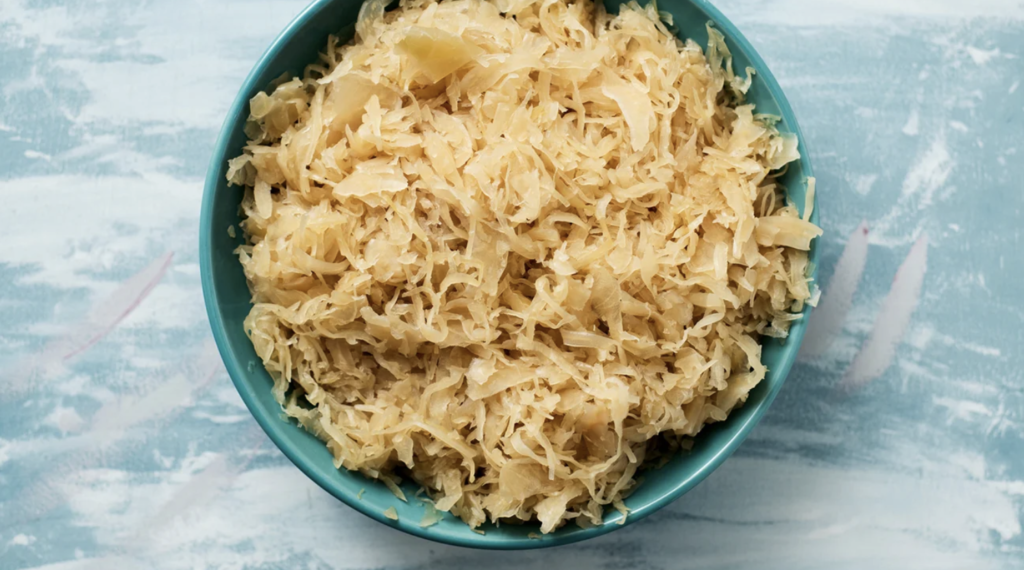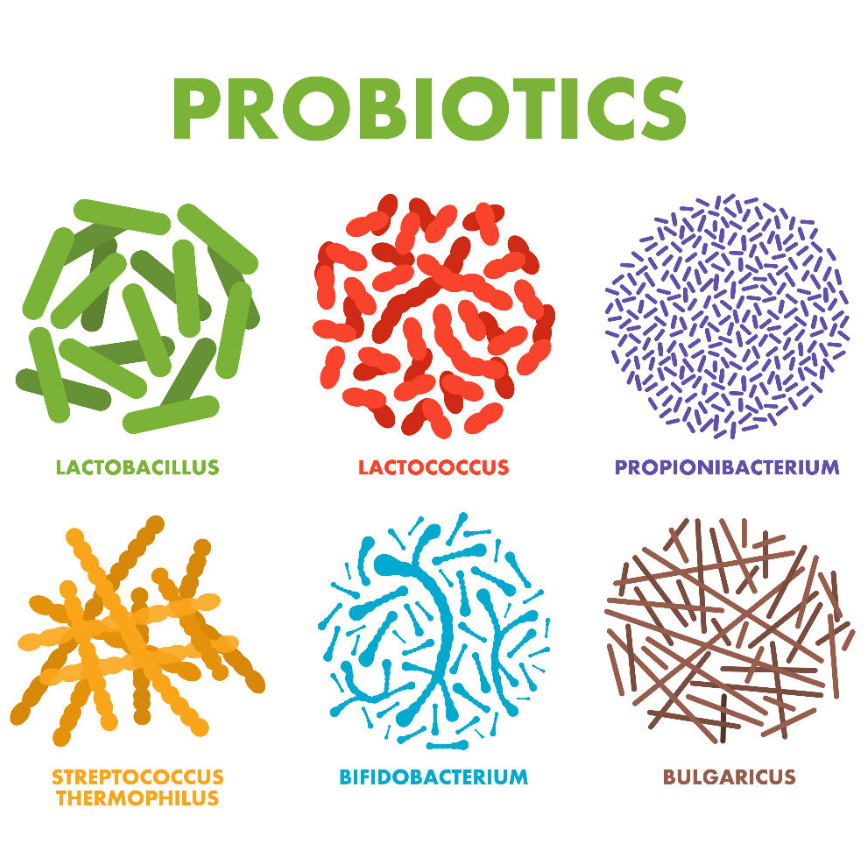Nurturing the Gut-Mind Connection
Within our bodies, an intricate network of communication exists, linking the gut and the mind in a dance of symbiosis. At the heart of this connection lies the influence of probiotics…
Probiotics, often hailed as the “good bacteria,” are live microorganisms that offer a host of health benefits when consumed in adequate amounts. Widely known for their digestive prowess, their impact extends far beyond mere gut health. While it may seem peculiar at first, the notion of a gut-mind connection is gaining increasing recognition in scientific circles. Let’s delve into the fascinating world of the gut-mind connection and the remarkable benefits that probiotics bring to the table.

Yeah, Your Gut Talks to Your Brain…
Contrary to conventional wisdom, the gut is not merely a digestive organ. In fact, it houses an entire ecosystem of trillions of microorganisms, collectively known as the gut microbiota. This bustling community of bacteria, fungi, and other microbes plays a pivotal role in maintaining our overall health.
Recent research has uncovered a direct line of communication between the gut and the brain, aptly termed the gut-brain axis. You know that fluttering feeling in your stomach before you give a toast? Or the sudden loss of appetite that comes with upsetting news? That’s your brain communicating with your gut’s microbiota, or more scientifically known as the gut-brain axis.
This bidirectional pathway enables constant communication between the two organs, influencing various physiological functions, including mood, cognition, and behaviour.
This can have profound effects on neurological disorders. For example, one study, published in the Frontiers of Neuroscience, showed that people with Alzheimer’s disease who took probiotics (a mixture of L. acidophilus, L. casei, B. bifidum,and L. fermentum) experienced positive effects on cognitive functions like learning power and memory.
Research is ongoing with the brain-gut connection and how probiotics can help. But so far, the work is promising — and, of course, you don’t have to have a chronic illness to reap the potential brain-boosting benefits.
Your mental health matters:
By modulating neurotransmitter levels, reducing inflammation, and enhancing the production of mood-regulating compounds like serotonin, probiotics can positively impact mood, alleviate symptoms of anxiety and depression, and even improve cognitive function.

Probiotics and gut health are also intimately linked to immune function, which is your body’s ability to fight infection or disease. Incorporating probiotics regularly is your best bet for continued well-being. But don’t be afraid to ramp up your intake a little more when you anticipate you’ll need more help, such as:
Mood Enhancement: Probiotics have been shown to alleviate symptoms of depression and anxiety by regulating neurotransmitter levels and reducing inflammation in the brain.
Cognitive Boost: By promoting the production of brain-boosting compounds and protecting against neuroinflammation, probiotics can enhance cognitive function and support brain health.
Stress Resilience: Probiotics have been found to mitigate the effects of stress by modulating the body’s stress response system and promoting relaxation.
Digestive Harmony: Of course, let’s not forget their primary role in promoting digestive health. Probiotics aid in digestion, alleviate symptoms of digestive disorders like irritable bowel syndrome (IBS), and maintain gut integrity.
Optimise the benefits:
So, how can we harness the power of probiotics to nurture our gut-mind connection and reap the benefits? Incorporating probiotic-rich foods like yogurt, kefir, sauerkraut, and kimchi into our diet is a delicious and natural way to support our gut microbiota.

Additionally, probiotic supplements are available for those seeking a more concentrated source of beneficial bacteria.
But remember, a diverse and balanced diet rich in fiber, fruits, vegetables, and whole grains is essential for nourishing not only our gut but also our overall health. And let’s not overlook the importance of lifestyle factors like regular exercise, stress management, and adequate sleep, all of which play a vital role in maintaining a healthy gut-brain axis.
Probiotic Strains
There are several strains of probiotics, each with its unique characteristics and potential health benefits. Here are some common types:
Lactobacillus:
This is one of the most well-known probiotic strains. It’s naturally found in yogurt and other fermented foods. Lactobacillus strains can help with digestion and may also boost the immune system.
Bifidobacterium:
Another common probiotic strain, often found in dairy products. Bifidobacterium helps maintain a healthy balance of gut bacteria, which is essential for proper digestion and immune function.
Saccharomyces boulardii:
Unlike other probiotics, this strain is a yeast, not a bacteria. It’s often used to prevent or treat diarrhea, especially in people taking antibiotics.
Streptococcus thermophilus:
This probiotic strain is often used in the production of yogurt and cheese. It can help with lactose digestion and may also have immune-boosting properties.
Lactococcus:
This strain is commonly found in fermented foods like cheese and yogurt. It may help with digestion and support overall gut health.
Enterococcus:
Some strains of Enterococcus can be probiotic, although they are less commonly used than other strains. They may help with certain digestive issues and support the immune system.

Conclusion:
The gut-mind connection is a fascinating realm of scientific exploration, shedding light on the profound impact of our gut health on mental well-being. By embracing probiotics as allies in our quest for holistic health, we can cultivate a thriving gut microbiota, bolster brain function, and nurture a harmonious relationship between our gut and our mind.
Discover the power of gut health with our premium vegan probiotic blend. Formulated with clinically researched strains, our probiotic supplement supports digestion, boosts immunity, and promotes overall wellness.

#fuelyourlife

